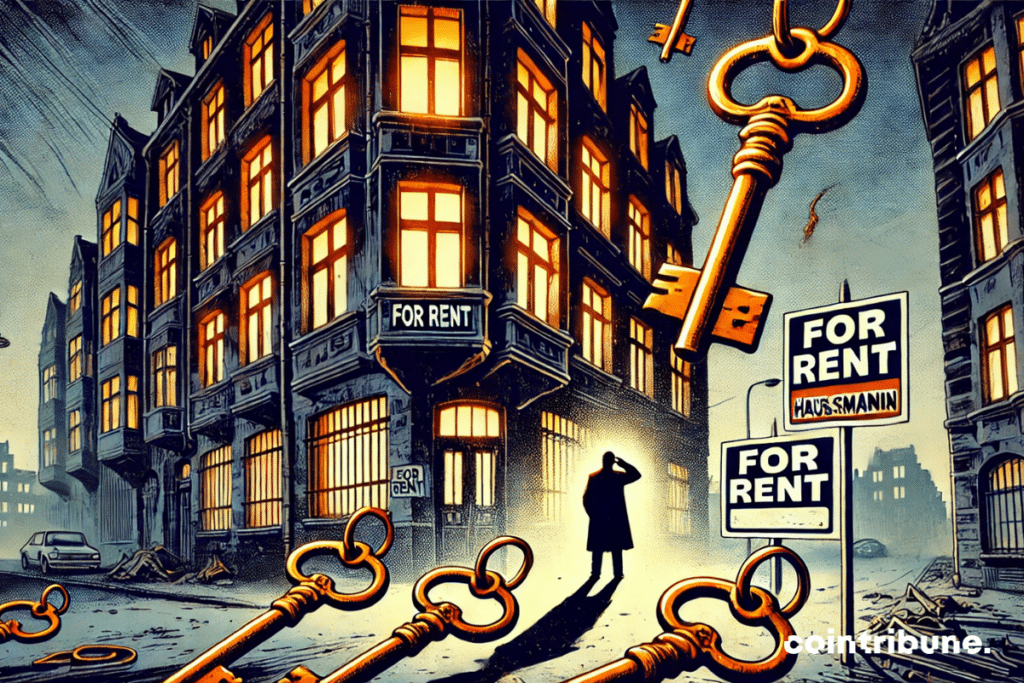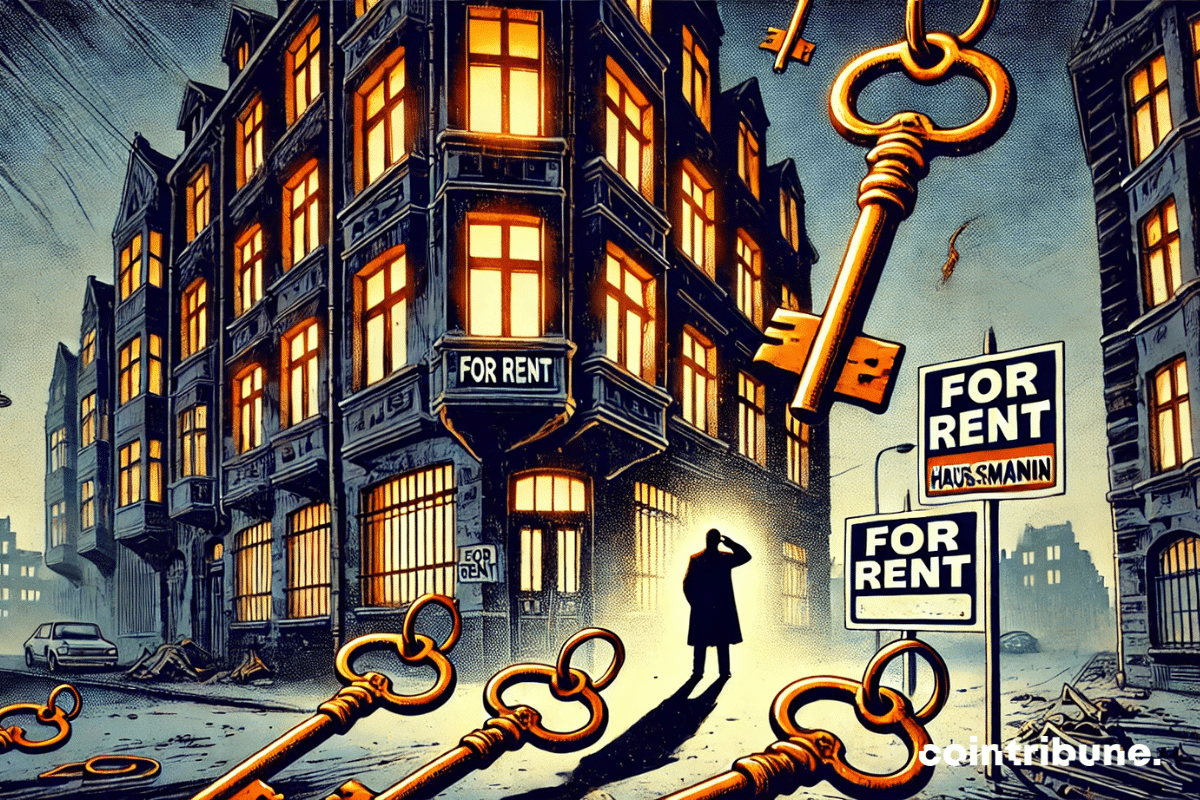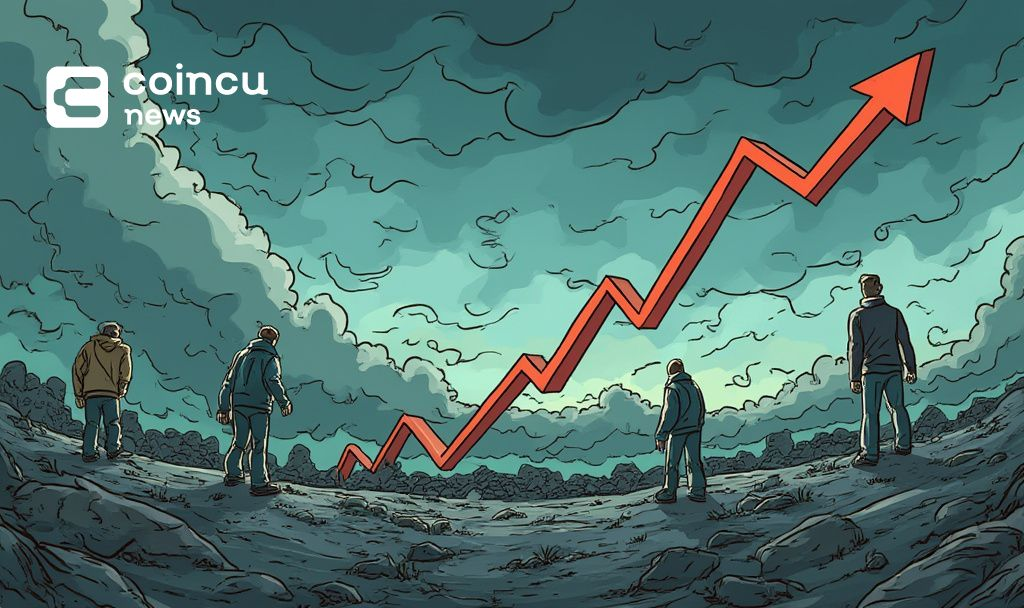 CaryptosHeadlines Media Has Launched Its Native Token CHT.
Airdrop Is Live For Everyone, Claim Instant 5000 CHT Tokens Worth Of $50 USDT.
Join the Airdrop at the official website,
CryptosHeadlinesToken.com
CaryptosHeadlines Media Has Launched Its Native Token CHT.
Airdrop Is Live For Everyone, Claim Instant 5000 CHT Tokens Worth Of $50 USDT.
Join the Airdrop at the official website,
CryptosHeadlinesToken.com
11h05
5
min read 
The French rental market is going through an exceptionally severe crisis, threatening access to housing for many households. Despite a slight recovery in the real estate sector, renting remains under strong pressure, with an offer in free fall and prices continuing to rise. According to the National Real Estate Federation (Fnaim), structural problems and poorly adjusted regulatory choices exacerbate this situation. Between the rise of short-term rental platforms and new constraints related to energy renovation, challenges are accumulating, revealing the urgency to act. This crisis, beyond the figures, engages major social and economic stakes for both tenants and investors.


A Rental Offer in Free Fall
For the past three years, the rental supply in France has seen a critical contraction of nearly 30 %. This decline, described by Loïc Cantin, president of the National Real Estate Federation (Fnaim), as a “true housing crisis to come”, illustrates the deep dysfunctions of the market. According to data from SeLoger, several interdependent factors explain this collapse. The rise in interest rates has significantly reduced the purchasing power of households, hindering their access to ownership. Furthermore, it immobilizes housing that could have been freed up for rental. This situation has created a bottleneck, which limits options for tenants and exacerbates tensions.
At the same time, an increasing share of available properties is migrating to short-term rental platforms such as Airbnb. These services, highly attractive to owners, have seen an explosion in night stays of 86 % over five years, according to Eurostat. Such an evolution, profitable for some investors, further destabilizes the traditional rental market. Families and students, already affected by exorbitant prices, are increasingly finding themselves in difficulty. This is evidenced by the 17 % of students who abandoned their studies in 2023 and 2024 due to the inability to find housing at reasonable costs, a situation that Loïc Cantin describes as “unacceptable”. This context imposes urgent reflection to restore a sustainable balance between supply and demand.
Public Policies and Their Socio-Economic Impacts
The current regulations, while driven by laudable ambitions, paradoxically contribute to exacerbating tensions in the rental market. Since January, the ban on renting energy-hungry properties, targeting poorly insulated homes, imposes often prohibitive renovation costs on owners. “These measures, while ambitious, jeopardize the viability of many rentals,” emphasizes Loïc Cantin. He advocates for reinforced financial support to help owners comply with these new requirements in order to preserve rental supply.
At the same time, the rise of furnished rentals is fundamentally reshaping the market. Supported by attractive tax advantages, this form of rental has seen its share grow significantly, rising from 9 % to 14 % nationally between 2006 and 2021, with a peak of 29 % in Paris. While this trend meets certain needs, it further complicates the search for stable and affordable housing for tenants, particularly families and young workers. Measures such as rent control, implemented in several major cities to limit these excesses, are still struggling to demonstrate their effectiveness. This situation illustrates the urgency of a comprehensive reform that reconciles tenant protection and support for owners, aiming to restore a sustainable balance in the rental sector.
The current crisis in the rental market places decision-makers at an impasse that demands urgent and structured measures. Thus, experts stress the need to rethink public and fiscal policies in depth. This is why they take into account the needs of tenants and the constraints faced by owners. Without a coordinated and ambitious strategy, tensions are likely to worsen, which could threaten the social and economic stability of the country. As divisions widen, acting quickly to restore balance in the rental market is no longer an option but an obligation.
Maximize your Cointribune experience with our “Read to Earn” program! For every article you read, earn points and access exclusive rewards. Sign up now and start earning benefits.
Diplômé de Sciences Po Toulouse et titulaire d’une certification consultant blockchain délivrée par Alyra, j’ai rejoint l’aventure Cointribune en 2019.
Convaincu du potentiel de la blockchain pour transformer de nombreux secteurs de l’économie, j’ai pris l’engagement de sensibiliser et d’informer le grand public sur cet écosystème en constante évolution. Mon objectif est de permettre à chacun de mieux comprendre la blockchain et de saisir les opportunités qu’elle offre. Je m’efforce chaque jour de fournir une analyse objective de l’actualité, de décrypter les tendances du marché, de relayer les dernières innovations technologiques et de mettre en perspective les enjeux économiques et sociétaux de cette révolution en marche.
DISCLAIMER
The views, thoughts, and opinions expressed in this article belong solely to the author, and should not be taken as investment advice. Do your own research before taking any investment decisions.












